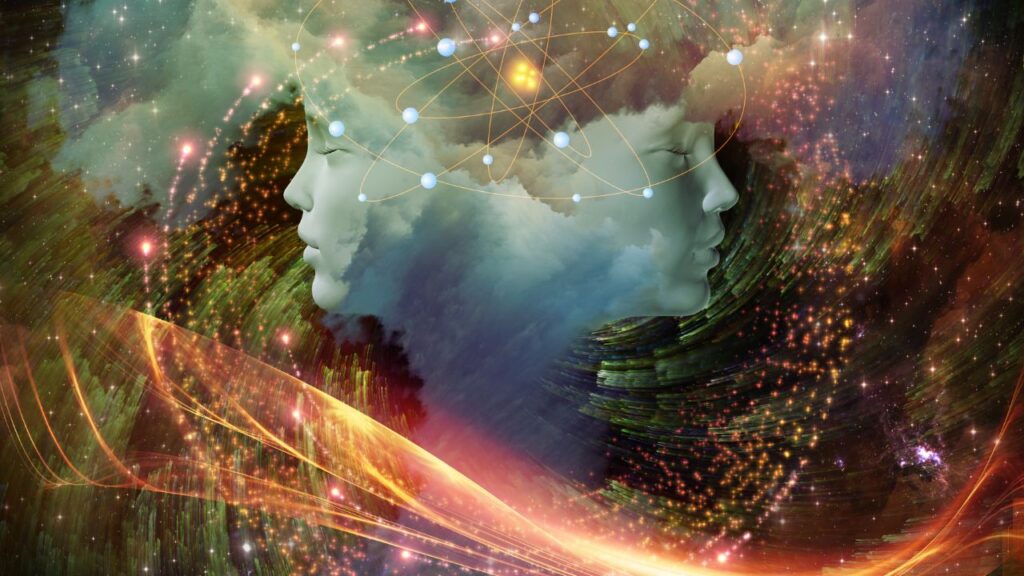Photo credit on dreams mean by Psychology Today
Dreams – a topic so exciting and yet so complex. What do dreams mean? Why do we have them? Imagine if our dreams were movies, it is hard to argue if they would make a blockbuster! But it never leaves you feeling bored! Dreams are pretty transient, and they are screened for an audience of only one – you.
I usually have vivid dreams, and sometimes, my dreams continue from where they were left off. Pretty crazy, right? One moment, I am somewhere in my childhood home, which has turned into a giant floating house at Stamford Bridge. And in the next I am enjoying a cup of cold brew with the legendary Diego Maradona and Gianfranco Zola, just before leading an army against an alien invasion!
But our dreams are much more complex than that, and the purpose of dreaming is not fully understood. For centuries, people have questioned the meaning of dreams or why we have them. The ancient Egyptians were convinced that dreams were a specialized form of vision, with trained dreamers acting as seers for the state to plan battles. On the other hand, ancient Greeks and Romans believed that dreams could predict the future as well as visitations by dead loved ones.
Times have changed since then. There has been no shortage of discussions and research about dream theories, and all of them are pretty interesting.
According to many dream psychologists and researchers, dreams help us process emotions and reveal much about our emotional and mental well-being. While good dreams can help us start the day cheerfully, a bad one can leave you flustered for hours, wondering exactly why you dreamed what you dreamed about. For instance, in my case, more often than not, I wake up scratching my brain about leading an attack against alien invasion or dreaming about getting dumped by my exes over and over again. It is unsettling, to say the least. Dream psychologists believe that all unpleasant and disturbing dreams have something to say, and ignoring them can have unhealthy consequences, preventing us from addressing anxieties or deep-seated traumas in our lives.
What Do Dreams Mean?
The father of psychoanalysis, Sigmund Freud, regarded dreaming as an expression of repressed wishes, desires, or conflicts that were often sexual in nature. According to him, dreams are a form of “wish fulfillment”. Except for Dr. Freud, no one has influenced modern dream theories and studies than the Swiss psychiatrist and psychoanalyst Carl Jung. Carl considered dreams as a kind of “shaped energy,” a way for the unconscious mind to communicate with the conscious mind. He believed that dreams are symbolic in nature and have multiple meanings attached to them. The basic idea behind “Jungian” dream theory is that our dreams reveal more than they conceal. Jung also rejected Freud’s theory of dream interpretations.
“We also live in our dreams, we do not live only by day. Sometimes we accomplish our greatest deeds in dreams,” said Carl Jung in The Red Book.
Paying attention to our dreams and thereby making the unconscious more conscious certainly has many benefits. The biggest one is that our dreams contain clues and insights that we are unable (or unwilling) to see when we are awake. The feeling of Déjà vu, your intuition, or subtle hunches that are not consciously processed are examples of those unprocessed realizations. Carl Jung went ahead and said, “Dream has been regarded as a truth-telling oracle.”
Why Do We Dream?

What is the purpose of dreaming? I have asked myself this question repeatedly.
You are falling or floating. You really want to break free, but your legs are numb. Your teeth are falling, or you are flying. You are constantly late for work and miss the big presentation or that exam. Wild animals chase you, or you miss the bus or the train. Why do you keep showing up at parties in embarrassing states, like why are your pants almost always missing? Most of us have had these dreams that made us wake up in panic or in sweat, questioning reality, only to realize that, well, they are just dreams. But why do we have them? Why are the dreams so bizarre and often perverse that you would rather carry them to your grave without revealing a single detail about them to anyone?
I have always been fascinated by dream theories. Many of my dreams involved seeing my parents, who passed away many years ago, igniting more traumas than happy memories. To me, it never made any sense to see that particular house and relive certain nightmares over and over again. I remember searching for answers to what do dreams mean and then stumbling upon dream theories.
Modern psychologists and neurologists armed with imaging techniques like PET scans and MRIs have taken things to a deeper and rather technical level. They have speculated that dreaming is our brain’s way of dumping excess data, consolidating certain important information, and ultimately alerting us of any dangers. Our dreams are the strongest during REM sleep or the rapid eye movement stage, where it is difficult to recall our dreams. Usually, REM sleep happens 90 minutes after we fall asleep, and we tend to have the most intense dreams during this time as our brains are more active here.
However, even after many theories and debates, the purpose of dreaming is still not fully understood. Here are some prominent theories on why we have dreams.
Dreams act as therapists to help us process emotions
One theory suggests that our dreams may help us to process our emotions. During the day, we experience a wide range of emotions. Our dreams help us process these emotions more deeply and may even help us make connections regarding our feelings that our conscious self would not make.
Dreams help us consolidate and aid our memories
One of the widely held theories is that dreaming helps us consolidate and store our memories, complicated thoughts, and the things we have learned. Dreams also help us get rid of unimportant memories and sort through our thoughts. During REM sleep, our brain is highly active, and it may be using this time to strengthen neural connections related to recent or past incidents and experiences. We all use the phrase “sleep on it,” particularly when you need to learn new information or have an important decision to make. With that, you will be able to recall that information better and make the right decisions.
Dreams as problem solvers
Some researchers and analysts believe that dreams may help us solve certain problems by allowing us to explore several possibilities, and see the situation from the lens of an outsider. As if you are a director and you have different options and scenarios to choose from.
Dreams help us stimulate reality
One of the most important theories is that our dreams are a way to stimulate reality, thereby preparing us for future events.
Dreams train us in flight-or-fight situations
One of the areas of the brain that is most active during dreaming is called the amygdala. Your amygdala is a small almond-shaped structure inside your brain and is part of a larger network in your brain called the limbic system. The amygdala and limbic system are both extremely important as they are associated with survival instinct or fight-or-flight response. One theory suggests that because the amygdala is more active when you are asleep, it may be the brain’s way of preparing you to deal with any threat. Thankfully, the brainstem sends out nerve signals during your REM sleep that help you relax your muscles.
Dreams act as our muse
Another theory suggests that your dreams help fuel your creative senses. Artists of all kinds have credited their dreams for inspiring them with some of their most creative work. When you are asleep, your creative thoughts freely flow without any kinds of restrictions or logic that your awakened brain may interject with.
Dream Interpretation – Types of Dreams and What They Mean

Dream analysts suggest that certain dreams and the objects you dream have very different meanings. Dreams can take any form, and there are many external factors from our waking life that may influence our dreams.
Anxiety dreams
These types of dreams are characterized by feelings of anxiety or even fear. Dreams where you are being chased, you are falling into an abyss, where you are standing over a cliff and then suddenly falling into nothingness. Dreams of falling are usually associated with feeling overwhelmed or out of control in your conscious state. Anxiety dreams may be a way for your brain to process and deal with stressful emotions and situations. But even though the dream of falling is very common, the devil is in the details, as it can mean different things to different people. For some people, falling or being chased is associated with very difficult or dangerous situations like encountering an accident. At the same time, for some, it may mean ‘falling from grace,’ alarming serious troubles you may face in life.
Lucid dreams
In lucid dreams, you are aware that you are dreaming. I mostly have such dreams. This type of dream can be very vivid and realistic, and you may be able to control the events of the dream or manipulate the surroundings of your dream to some extent in a wake-like fashion, making them incredibly fascinating. Examples of lucid dreams include flying, traveling to another country or even another planet within nanoseconds, talking to our deceased loved ones, or meeting with our long-lost friends.
These dreams, especially where you may see or even talk to a departed loved one, can be a healing process. After my mother passed away, I dreamed about her for six months straight, dreaming pretty much the same dreams every single time I closed my eyes. I was going through excruciating pain and remember waking up crying and desperately searching for my mother, but this dream helped in my grief journey. Dreams can often be healing. I dreamed about both of my deceased parents last week, seeing them engaged in a conversation while being unaware of my presence. And I woke up smiling.
Wish fulfillment dreams
In these kinds of dreams, our desires and wishes get fulfilled. Examples include you dreaming about getting a promotion, being the CEO, winning the lottery, being the president, or living your ideal life. These kinds of dreams may be a way for the brain to explore different scenarios and satisfy your deepest desires. These dreams are usually grandiose and mostly follow the Freudian pattern.
Unsettling dreams or nightmares
Nightmares are dreams where you wake up feeling scared, dreams that frighten you or make you feel extremely anxious or scared. Nightmares may be a way for your brain to process traumatic experiences or to prepare you for potentially threatening events in the future. Dreams where you are being chased by a monster, bitten by them, you are standing naked in public, cheating or being cheated on by your partner, where your teeth are falling out, or you suddenly lose your voice and are unable to speak, shout, or even run. All this can be summed up as feelings of fear, embarrassment, shame, anxiousness, or vulnerability in our conscious lives. Dreams where we cannot move may not always be a dream, but may result from sleep paralysis. Physiologically, during our REM sleep, we are paralyzed to prevent our bodies from moving while we dream. People who experience steam paralysis usually wake up before the REM cycle is complete. This space between sleep and waking up can be experienced as a dream but can also be experienced as being unable to move, run, talk, or, in some extreme cases, breathe.
The Bottom Line
Dreams are an incredibly intriguing aspect of human consciousness. While we may never fully understand what do dreams mean, why we dream, or their purpose, we can agree on one thing – they are mysterious phenomena that will keep on fascinating us. Our nights would definitely be quieter and sleep would be serene if we didn’t dream at all, or dream so much. But our minds surely would not be as rich. Whether we dream to process our emotions, aid our memories, or solve our problems, dreams give us a glimpse into the workings of the human brain. The viewing room of the sleeping brain may sometimes wear us out, but like all good movies, it will rarely leave you bored.
So, the next time, you wake up from a strange dream, just pause for a moment and appreciate the beautiful complexity of your mind. Trust me, it will leave you in awe.
Related Post
From Overwhelmed to Empowered: Anxiety vs. Panic Attack
Mindfulness Quotes- 63 Inspirational Reminders of the Gift of Present Moment















